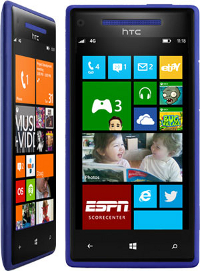You'll love Windows Phone 8 if you like Windows Phone 7

It has been a quality 24 hours for gadget freaks and lovers of shiny objects: Microsoft has unveiled most of Windows Phone 8, and Google has launched a trio of new Nexus devices.

The Mountain View, California, search giant clearly decided that lowering the cost of its devices is the angle that it will use to generate excitement. And with a new Nexus 4 priced at US$299, it looks like a winner.
Meanwhile, the boffins at Redmond, Washington, took an entirely new tack with the new Windows Phone 8 (WP8) operating system.
Unlike last week's Windows 8 launch, where all and sundry knew exactly what to expect, and many techies had already installed and played with the new version of Windows, Microsoft decided to keep parts of WP8 under wraps to generate "excitement."
I'll admit that I was excited for today's WP8 launch, but it was the sort of excitement that one feels knowing that the 24-hour marathon showing of Bio-Dome will end shortly.
This isn't a new sensation. WP8 has been building developer angst for months.
WP8 is in the extraordinary position of having launched without a development kit being shown to developers at large — that will belatedly follow tomorrow, but the opportunity to allow developers to dip their feet into the new platform has been missed. It is a very un-Microsoft way to go about a launch. Normally, you'd expect the company to parade a series of applications developed to show off the features of Windows Phone 8. This time, though, we were left with our imaginations.
And armed with this new WP8 SDK, what killer feature of WP8 would make developers want to develop for the platform?
Microsoft hopes that it will be the increased code reuse between Windows 8, Windows RT, and WP8, and the ability to program in C and C++. But given that Windows 8 is barely off the ground itself, a lot of developers will still have to write brand-new "Metro" applications, or port older applications across.
There are plenty of baked-in, enterprise-focused features: company application hubs, full device encryption, Secure Boot, and improved device management. But nothing in this list stands out and cries for developer attention, and that attention is what Microsoft desperately needs. Similarly, the consumer-facing upgrades do not strike out as major upgrades over WP8's rivals.
Windows Phone 8 is offering developers not much more than what Windows Phone 7 possessed, albeit with a bigger screen, more Live Tile real estate, and hopefully a decent web browser in the form of IE10.
It feels more like an upgrade than a Windows 8-coupled revolution.
If your handset is of recent iOS or Android ilk, then there is nothing to be seen that is worthy of envy — in fact, I recommend just making groups of applications, simply because you can, as you will not see that on WP8. But if you are an existing Windows Phone user, or you liked the look of WP7, then now is time to jump into the ecosystem.
Australia will have five WP8 handsets on offer initially.
Nokia will be offering its Lumia 920 through Telstra, with its Lumia 820 available on Optus and Vodafone. Both handsets are expected to hit shelves at the end of November.
HTC will come out with its 8X and 8S handsets. The 8X is an impressive bit of gear, offering a 720p HD display (1280x720) with 342 pixels per inch (ppi) — by comparison, the iPhone 5 has 326ppi, and Samsung's Galaxy S III has 306ppi — and a nicely tapered body. The 8X will arrive on Telstra and Vodafone, and its 8S brethren will be found on Telstra and Optus.
Optus will offer Samsung's Ativ S phone exclusively.
A lack of handset options won't hold WP8 back, but Microsoft is now competing with an unlocked Nexus device that retails for US$299.
Microsoft is locked in a struggle for third place with RIM. Both are trying to make an impact in Western nations, but RIM does extraordinarily well in developing countries, whereas Windows Phone does extraordinary well at internal Microsoft meetings and not much else. At least RIM has a couple of cards left up its sleeve with BlackBerry 10.
Today, Microsoft has shown its cards — and it's the same hand we saw last time around.